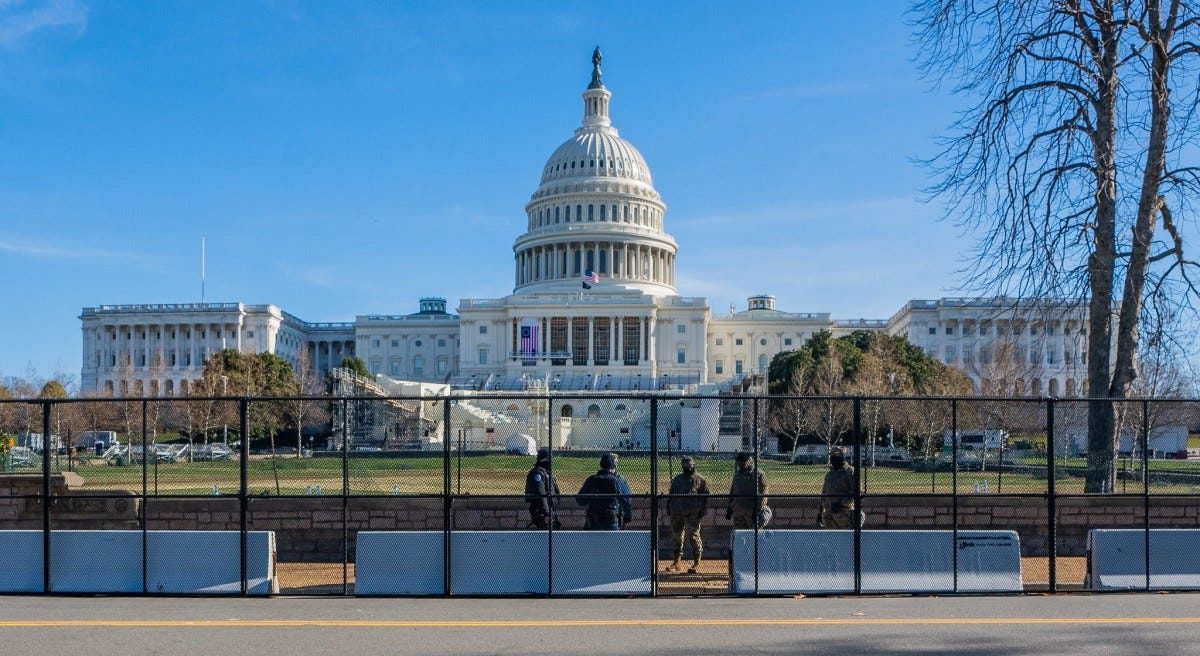January 6 Isn't an Electoral Strategy
Everything we've seen so far suggests voters just don't care.
In 1873, Alexander Hamilton Stephens was elected as a Democrat to the U.S. House of Representatives in a special election in Georgia. A year later, Stephens' party took back the House of Representatives in one of the first midterm waves in U.S. history. In all, it took less than a decade from the end of the Civil War for the party of "states' rights" to win back power and install the former vice president of the Confederacy as chair of a House committee.
What this episode in our history shows—aside from the fact that Reconstruction should have lasted longer, much longer—is that voters have extremely short memories. Roughly three-quarters of a million people died during the Civil War. Nine years later, all it took was an economic panic and an explosive bribery scandal for the party that had led the union through its most tumultuous period to lose power to the party which had sought to end that union. (Its means of victory were not entirely peaceful, either.)
January 6, 2021, could have been much, much worse than it was, and it could still be the predecessor to something worse. But it was not the Civil War; contrary to the claims of Hill reporters and Lincoln Project bloviators, it wasn't even 9/11. And a year after Trump supporters rioted the Capitol and temporarily delayed Congressional certification of Joe Biden's election victory, it currently looks as though voters in the midterm elections coming up this year really don't care.
A Morning Consult poll released Sunday, for example, found that while nearly 60 percent of voters fault Donald Trump for the attack and nearly half blame congressional Republicans, voter sentiment towards the Republican Party itself is actually better than it was right before January 6. The Republicans would likely be in a good position to take back the House of Representatives even without gerrymandering and their efforts to make it harder to vote, but having used the past year to further cement their power, the GOP is the odds-on favorite right now.
This doesn't mean the Democrats should entirely ditch the January 6 committee, although so far, it's been utterly ineffective in changing anyone's mind about what happened that day, or doing anything except making martyrs of former Trump officials and associates who tried to help him overturn the election results on bogus fraud charges that no one in their right mind actually believed.
There's an ongoing debate within the party on how and when the Democrats should use January 6 as part of their campaign strategy, as CNN reported Sunday. "I just disagree with this notion that we shouldn't talk about this and that we shouldn't talk about what is at stake here and that this isn't important to people in their everyday lives," Rep. Jason Crow, a Colorado Democrat who comforted Rep. Susan Wild as the riot was ongoing, told CNN. "It would be a massive mistake for us to discount this."
But again: as traumatic as January 6 may have been, when push comes to shove, it's not what people are voting on. As CNN pointed out, Virginia Attorney General Mark Herring attempted to tie his opponent to the Capitol riot by linking him to the Republican Attorneys General Association, which helped fund and organize the Save America rally on the Ellipse before Trump supporters marched to the Capitol. Herring lost.
January 6 cannot be the Democrats' primary campaign theme this year, and it cannot be a fallback option if the Democrats don't pass any of Biden's agenda, if the child tax credit permanently dies and student loans are resumed, and if the Biden administration doesn't end the pandemic as we know it or at least get a better handle on it. If the Democrats want to put themselves in the best possible position to win the election and ensure whatever it is we have left of democracy survives for a few more years, they're going to have to do it the old-fashioned way—talking to voters about the ways in which Democratic control has made and will continue to make their lives better. But before they talk about it, they have to have something to show.



